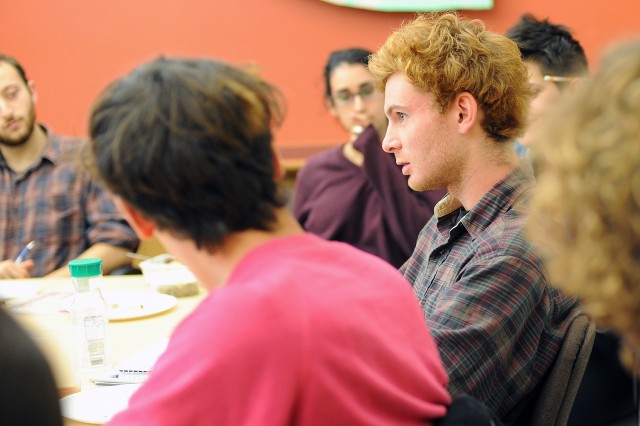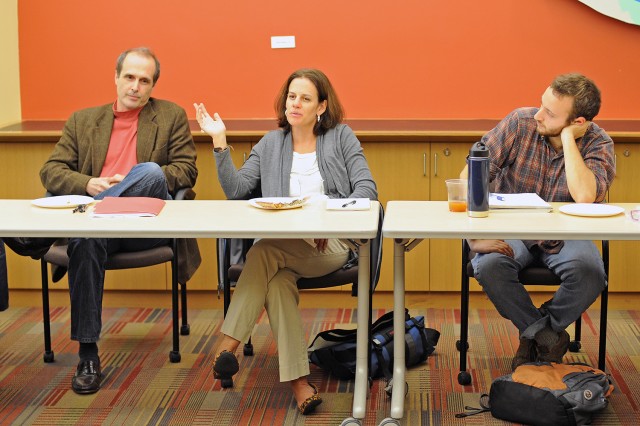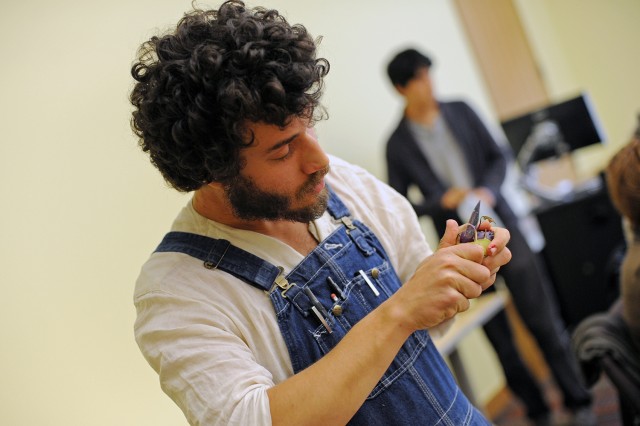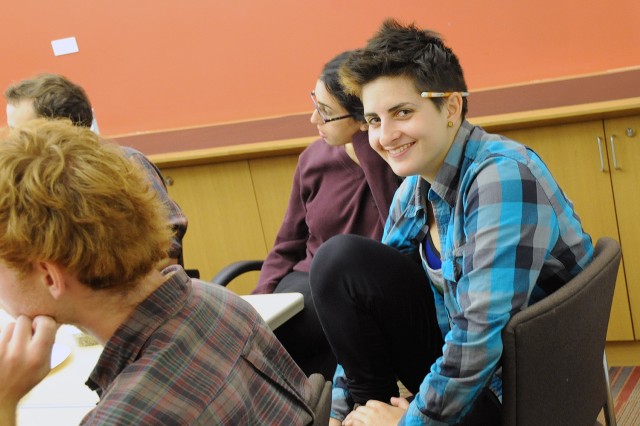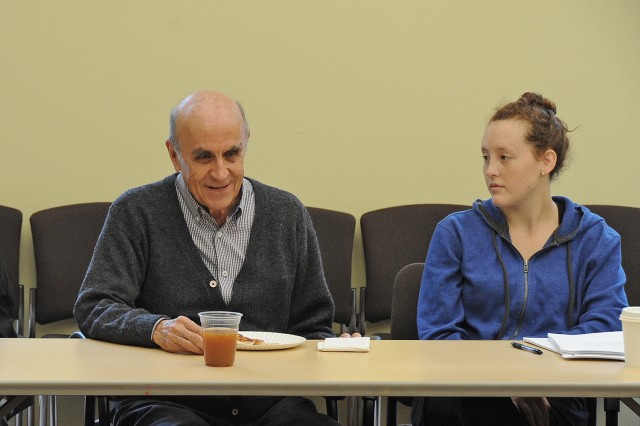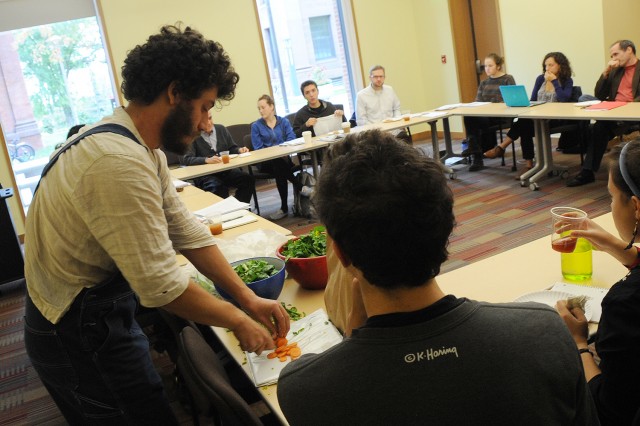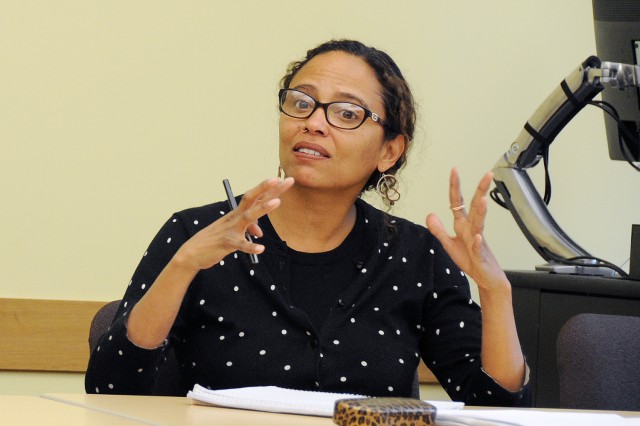“Re-Envisioning the Commons” Theme of COE Think Tank
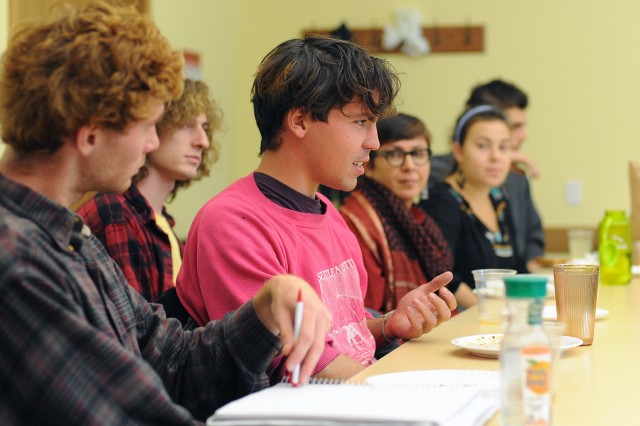
Humanity is called to imagine an ethic that not only acknowledges but emulates the ways by which life thrives on Earth. How do we act, when we truly understand that we live in complete dependence on an Earth that is interconnected, interdependent, finite, and resilient? – The Blue River Declaration
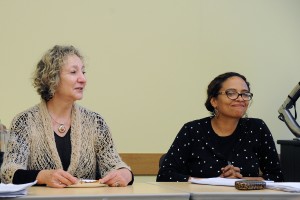
Every year, the College of the Environment gathers a group of Wesleyan faculty, scholars of prominence from outside Wesleyan and undergraduate students into a year-long academic think tank on a critical environmental issue. This year’s theme is “Re-Envisioning the Commons.”
On Oct. 10, the group began engaging with the “Commons” theme as a way to think about moral ecology. The original “commons” was a physical social space, but in the years since biologist Garrett Hardin’s much-cited 1968 essay, “The Tragedy of the Commons,” the phrase “the Commons” speaks to the impossibility of liberal visions of freedom in the face of population growth that inevitably exhausts common resources.
Whether taken as a place with physical reality or taken as metaphor, the Commons serves as meeting ground – of living things and ideas.
As a metaphor, the group discusses the interdisciplinary discourse between economists, political scientists, environmental scientists, ecologists and ethicists on the management of common property resources by bringing into the conversation the humanities and the performing arts. As a physical reality, the think tank will conjoin its scholarly work with the efforts of student groups like the Long Lane Farm Club, WILDWes and WesFresh, and other campus groups committed to local food sovereignty and social justice.
“With this bridge of theory and praxis, we aim to grow epistemological and methodological repertoires for re-envisioning our relations within and with the Commons,” explained COE Fellow Gillian Goslinga.
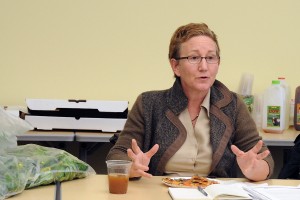
Goslinga, assistant professor of anthropology and science in society, is joined in the think tank with COE faculty Fellows Paul Erickson, assistant professor of history and science in society; Nicole Stanton, associate professor of dance; and Frédérique Apffel-Marglin, the Menakka and Essel Bailey ’66 Distinguished Visiting Scholar in the College of the Environment. View their bios online here.
Apffel-Marglin is professor emerita in the Department of Anthropology at Smith College, and founder (in 2009) and director of Sachamama Center for Biocultural Regeneration in the Peruvian High Amazon. She was born in France and raised in Tangier, Morocco. She has spent years in India and Peru working with indigenous peoples and with farmers. She was a research associate at the World Institute for Development Economics Research (WIDER) in Helsinki, a part of the United Nations University, for several years in the 1980s and early 1990s. She has authored and edited more than 12 books and 50 articles.
The aim of the think tank is not only to generate a deeper understanding of the thematic issue, but also to produce scholarly works that will influence national/international thinking and action on the issue. Scholars and students in the think tank are expected to produce scholarly works by the end of the academic year. Each year the scholars and students will report on their findings at the annual Earth Day Celebration.
More photos of the Oct. 10 think tank meeting are below:
